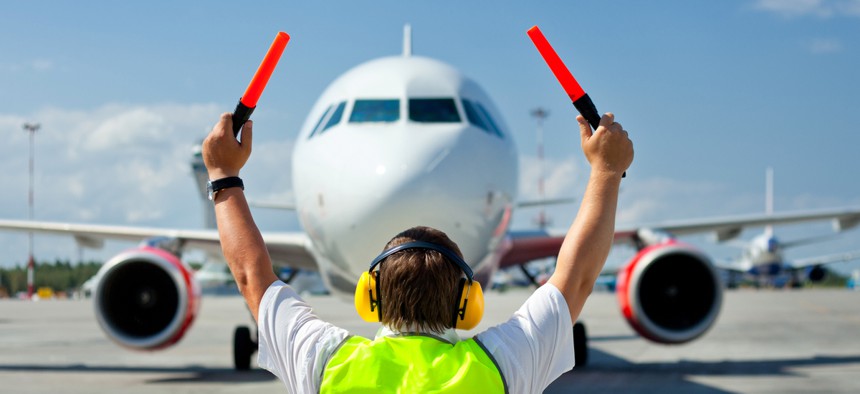Survey: Many Americans Support Facial Recognition in Airports

JetKat/Shutterstock.com
Though some think it’s invasive, a new survey suggests attitudes about the emerging tech might be improving.
One in three Americans do not support the government using facial recognition to boost security and speed at airports—but most do—according to a new study from travel booking site Reservations.com.
The Homeland Security Department has been rolling out the emerging tech at airports across the nation through its Biometric Exit program and a recently unveiled plan to implement facial recognition technology on almost all departing air passengers by 2023.
“Since facial recognition technology has rapidly expanded in airports the last few years, we wanted to get perspectives on the growing use of the technology," Joseph Robison, a representative of Reservations.com told Nextgov. “We conducted this survey because we're interested in keeping a pulse on travelers' experiences and frustrations.”
Through an online survey, the company polled 1,001 adult internet users from across the United States. The site posed the question: “Agree or disagree? I’m ok with the government using facial recognition technology at airports to improve security and boarding speed.”
A little over 42% of respondents said they approve of the use of the technology and nearly half of those people said they strongly agree with the statement. Almost 25% said they neither agree or disagree, and 32.5% said they do not agree and are unsupportive of the tech.
Robison said he was surprised by two elements of the results.
“First, that the largest share of respondents approved of the use of facial recognition technology, at nearly 43% of those polled. Second, that there is still a large undecided audience,” he said. “We expected this hot-button issue to have citizens more divided, but there's still a solid 25% that is in the middle."
Perhaps notably, of the age groups polled, individuals between 18 and 24 years old were the least likely to agree with the statement, and those between 55 and 64 years old were most likely to agree.
But Robison also said he’s observed that attitudes around the technology appear to be evolving in support since 2018. He referenced a Brookings survey from October 2018 that found just 31% favorable to using the technology in airports to establish identity (with 44% having an unfavorable view) and a December 2018 survey conducted by the Center for Data Innovation that found 54% of respondents were opposed to limiting the technology.
“Across all three surveys, the undecided audience remained the same, at around 25% of those polled,” Robison said. “But this change in sentiment may point to growing acceptance of facial recognition technology as part of the modern airport experience."
The results of this survey corroborate similar findings in Unisys’ 2019 Security Index, which suggests most people are willing to give up their biometric data at airports when they perceive a real security benefit.






